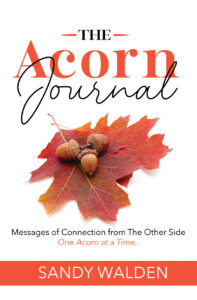 originally published in Psych Central’s World of Psychology blog (February 5, 2020)
originally published in Psych Central’s World of Psychology blog (February 5, 2020)
https://psychcentral.com/blog/why-are-we-afraid-of-grief/
After receiving news of a death, no matter our emotional state, most of us think to do at least some of these things: call others, check our schedules and arrange any necessary changes to accommodate the funeral or memorial service and any travel required, organize meals for the bereaved, visit the home or funeral home and leave offers of help, and comfort survivors.
Stop for a moment and think now about the people you encountered in your everyday life today, on the roadways, public transportation, in shops and offices of every kind, or just walking down the street. Might some of these have received that call and be grieving? Did you see anyone crying? Probably not. Yet, the bereaved — as hurt and injured as they are — do not usually stay at home and out of sight as they used to in days gone by, certainly not for long. Who did you see today who is carrying the pain of loss … or any other kind of invisible wound?
After I lost my husband, I cried in the car on the way to work every day. Eventually, I looked around and saw I was the only one who was crying. I asked myself questions. Did no one else suffer loss or hardship? Was I the only one? I knew that couldn’t be true, but it seemed so. When I arrived at my office, I dried my eyes and went inside to conduct business of the day. Is that what we do? Hide our grief. Fake a smile and act as if our hearts are not breaking?
A few hours or days of comfort might be available, but it seems that soon others start to give out clues that a “can-do” attitude would be appropriate. Death is scary. No one wants to sit with its unknown aspects indefinitely. I would guess that few of us really want to contemplate our own mortality for too long. Experiencing a loss is certainly a reminder.
Grieving is a unique process, and sometimes it takes a great deal of time for an individual to reach a “better day.” Accident, disease, natural death, even homicide … these hold terrible pain that must be processed, but we can understand them, for the most part. However, for many of those who grieve a suicide or other type of traumatic or unusual end, the aftermath is much different. Not more important or more severe, but tangled with additional issues that other types of death do not often contain.
Undeserved stigma still leaves most family members and friends to cope in isolation. Judgement, accusations, or outright shunning might even begin the moment the cause of death is known. Due to these complications and internal turmoil and uncertainty, the grieving period might be much longer than expected. It has been said that suicide is like a grenade going off in the midst of a family. Survivors need intensive care, understanding, and nonjudgmental support. But they can survive and rebuild lives that honor those they lost. Healing — not forgetting — is possible. And that is true for all of us. Difficult, yes, because to process grief means we have to face it and work through it.
Suicide is at epidemic levels, worldwide, but it is still a mystery. Why does one person resort to such drastic measures while another does not, though life circumstances might look similar on the surface? No one is exempt from wondering. This can include medical professionals, like doctors, counselors, and psychiatrists, as well as first responders and law enforcement personnel. Though more resources are available now than ever before, the subject is still very much taboo in many places in the United States and across the globe. That needs to change … for the 45 million survivors in the United States alone who are grappling with this type of loss and for more than 5 million people around the world each year who experience a loss to suicide.
When we suffer loss, we all need a bridge to bring us from the realm of death — where we must go to process such devastation — back to life. Connecting with each other, listening nonjudgmentally, and offering compassion can be that bridge. Healing after losing someone who is central to a person’s life is complex. Our lives have been changed. To find a way to deal with both loss and survival, we need support and space to grieve.
What does that mean? It might mean taking extra time off work, if that is possible, not hiding forever. It certainly means finding an understanding friend to confide in, a good match for private counseling, and appropriate medical and mental health care. Beyond that, a local or online support group can help by offering opportunities to receive encouragement, compassion, understanding, and ways to help others. Often, it is extending a listening ear or reaching out to comfort others that brings our own first glimpses of light in an otherwise dark existence.
Incorporating loss into new life is healthy, and it is not something that must be done alone.

